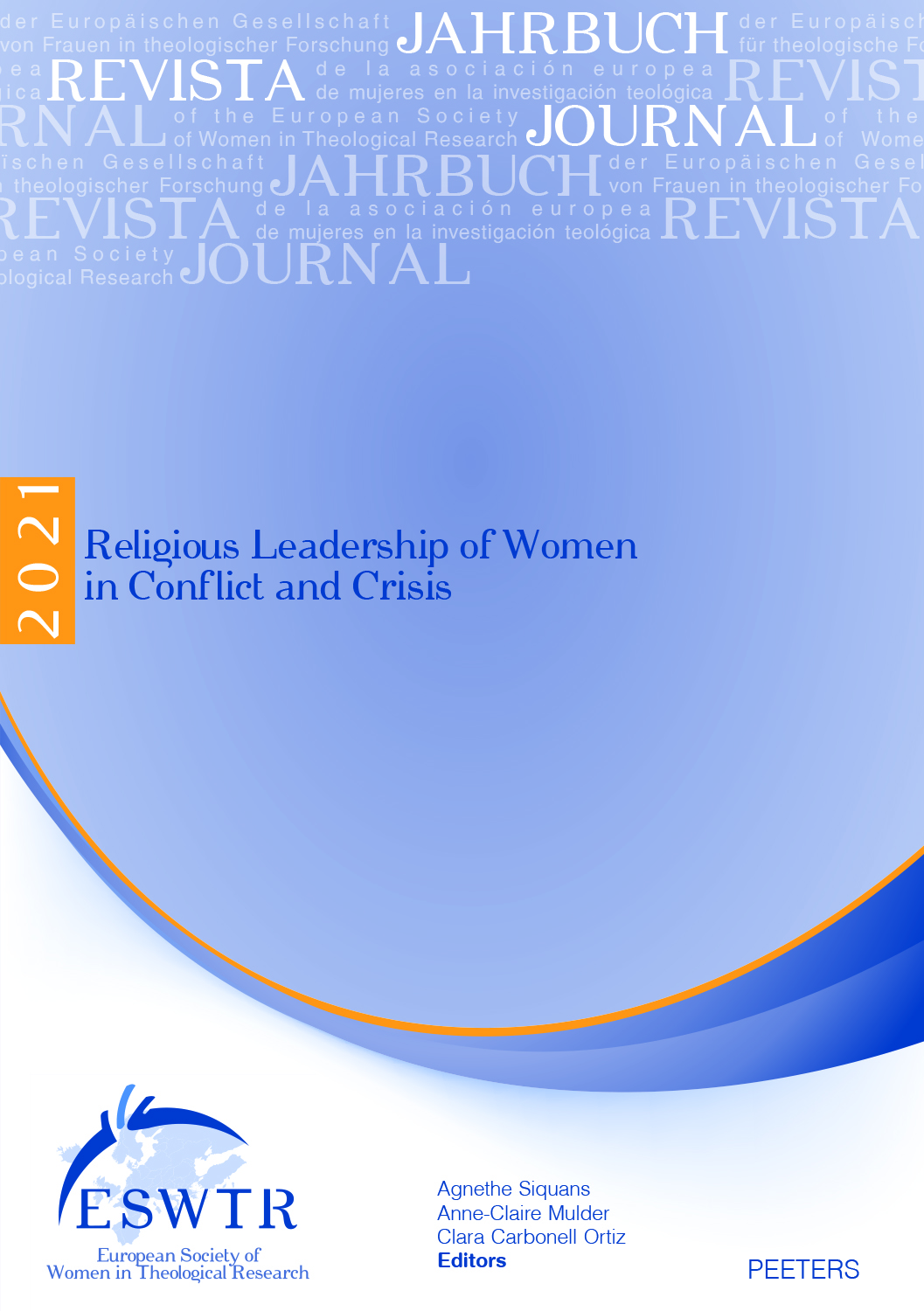 previous article in this issue previous article in this issue | next article in this issue  |

Preview first page |
Document Details : Title: Dvoyra Fogel Subtitle: Zwischen zwei Weltkriegen im Kampf um die Identität Author(s): HROTKÓ, Larissza Journal: Journal of the European Society of Women in Theological Research Volume: 29 Date: 2021 Pages: 135-150 DOI: 10.2143/ESWTR.29.0.3289664 Abstract : Der Artikel handelt von der jüdischen Dichterin und Schriftstellerin Dvoyra Fogel (Debora Vogel) (1900-1942), die die jiddische Sprache zum Symbol ihrer künstlerischen Unabhängigkeit und Identität machte. In der politisch und wirtschaftlich kritischen Zeit zwischen den beiden Weltkriegen widmete Fogel ihr Talent und ihre umfangreichen Kenntnisse der Literatur, bildenden Kunst, Philosophie und Psychologie der Selbstbehauptung jüdischer Kunst und jiddischer Literatur. Als Frau fühlte sie sich auf dem künstlerischen Fachgebiet benachteiligt. Trotzdem gab Dvoyra Fogel ihren individuellen Kampf um Anerkennung jiddischer Lyrik nie auf. Im 21. Jahrhundert wurde Dvoyra Fogel selbst zu einem Symbol des Kampfes um die Anerkennung der Frauen-Identität in der Literatur und Kunst. Alle Bereiche und Besonderheiten von Fogels künstlerischer Tätigkeit könnten in einem Artikel nicht ausführlich besprochen werden. Deshalb beschränkt sich dieser auf die Schilderung eines besonderen Charakterzuges der Lyrik von Fogel, und zwar den Gebrauch der Wiederholungen im dichterischen Text. The article is about Dvoyra Fogel (1900-1942), a Jewish poet and writer who made the Yiddish language a symbol of her artistic independence and identity. In the politically and economically critical period between the two world wars, Fogel devoted her talent and comprehensive literary, fine artistic, philosophical as well as psychological knowledge to the autonomous endeavours of Jewish art and Yiddish literature. She felt that as a woman she was in a disadvantageous situation in the field of arts. Despite this, she never gave up her individual fight for the acknowledgement of Yiddish poetry. In the 21st century, Fogel herself became the symbol of the battle fought for the appreciation of women’s artistic identity. It is impossible to talk about all the fields and features of Fogel’s artistic activity in detail; therefore, the article is limited to a single special characteristic of Fogel’s poetry, namely, to the use of repetitions in poetic texts. Este artículo versa sobre Dvoyra Fogel (1900-1942), una poetisa judía y escritora que hizo de la lengua yiddish un símbolo de su independencia artística e identidad. En el período crítico comprendido entre las dos guerras mundiales, tanto política como económicamente, Fogel consagró su talento y conocimiento literario, artístico, filosófico y psicológico a los esfuerzos de emancipación de la literatura en yiddish. Sentía que, como mujer, se hallaba en una situación de desventaja en el mundo de las artes. A pesar de ello, nunca se dio por vencida en su lucha por el reconocimiento de la poesía en yiddish. En el siglo XXI, la propia Fogel se convirtió en un símbolo de la batalla por la apreciación de la identidad artística de las mujeres. Es imposible hablar de todos los campos y características de la actividad artística de Fogel en detalle. Por ello, este artículo se circumscribe a un rasgo especial de la poesía de Fogel, a saber, el uso de repeticiones en textos poéticos. Fatal error: Uncaught mysqli_sql_exception: Column 'lib_id' cannot be null in /srv/data/web/vhosts/poj.peeters-leuven.be/htdocs/secure/POJ/tracker2.php:212 Stack trace: #0 /srv/data/web/vhosts/poj.peeters-leuven.be/htdocs/secure/POJ/tracker2.php(212): mysqli_query() #1 /srv/data/web/vhosts/poj.peeters-leuven.be/htdocs/article.php(579): track2_page_hit() #2 /srv/data/web/vhosts/poj.peeters-leuven.be/htdocs/content.php(634): include('...') #3 {main} thrown in /srv/data/web/vhosts/poj.peeters-leuven.be/htdocs/secure/POJ/tracker2.php on line 212 |
